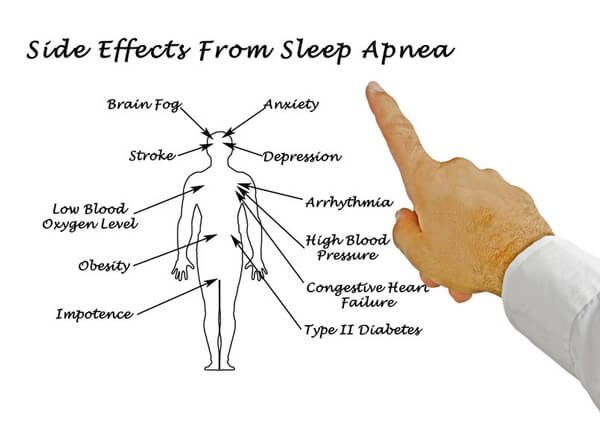Dealing With Obstructive Sleep Apnea
Obstructive sleep apnea (OSA) is an unconscious interruption in breathing that occurs during sleep, and it is caused by a blocked airway. Individuals suffering from this condition unwittingly stop breathing multiple times throughout sleep, and when the airway is opened, the person may awaken fully with a feeling of choking, gasping, or smothering. The pauses occur briefly and may only persist for a few seconds, but they may happen several times within an hour.
Causes of Obstructive Sleep Apnea
Physical obstructions to the airways contribute to OSA, mainly when there are excessive fat stores or thickened tissues enveloping the airway. It can also occur if you have smaller airways in your throat, nose, or mouth, or if you have enlarged tonsils. This obstruction inhibits the flow of air, and any air that manages to pass through causes the loud snoring linked to OSA.
About 30 million people in the U.S. have sleep apnea, and sometimes the disorder may go undiagnosed. Individuals with sleep apnea may not perceive the symptoms, especially if they don’t have a bedmate. The malady is more prevalent in men than women.
Risk Factors
The risk factors for OSA include:
- Chronic sinusitis
- Supine sleeping (flat on the back)
- Large neck circumference
- Menopause
- Down syndrome
- Smoking
- Family history of sleep apnea
- Large overbite or recessed chin
- Obesity
- Large tonsils or adenoids
- Recent weight gain
- High blood pressure
- Being at risk of stroke or heart failure
Symptoms of Obstructive Sleep Apnea
Another person may witness the symptoms of OSA. They may see the individual stop breathing, grunt, or gasp and then go back to sleep.
One of the most frequent symptoms of OSA is daytime sleepiness. Individuals with OSA may not know of their problem, and if they wake up at night, their sleep may not be restful. As a result, they will feel unusually sleepy during the day.
Other OSA symptoms include:
- Insomnia or restless sleep
- Loud snoring
- Morning headache
- Waking up with a sore throat or dry mouth
- Heartburn
- Erectile dysfunction or reduced libido
- Difficulty concentrating
- Large neck circumference
- Waking up multiple times to urinate
- Night time sweating
- Irritability
Treatment of Obstructive Sleep Apnea
Most people can receive successful OSA treatment in West Palm Beach, Florida, with one of the following:
CPAP: Continuous positive airway pressure (CPAP) is among the most recommended options for treating OSA. CPAP involves using a unique device that sends pressurized air into your airways with every breath you take. The pressure hinders interruptions in your breathing by ensuring your airways remain open. Individuals using CPAP wear nasal pillows or a nasal mask connected to a small machine.
Dental Devices: People who cannot tolerate or don’t want CPAP have the option to use dental devices. A dental appliance is a mouthpiece that is worn overnight to maintain open airways. Your Palm Beach, Florida, specialist may use a mandibular advancement device to push your jaw forward, thus opening the upper airway. Another choice is a tongue-retaining device, which prevents your tongue from blocking your airways by maintaining it forward.
Surgery: Surgery for OSA is only recommended in the event that other treatment options have been ineffective. An oral surgeon can use numerous surgical procedures to treat OSA. For instance, one method uses radiofrequency ablation to extract excess tissue from the bottom of the tongue. Another technique is surgery to push the muscles of the tongue forward. It is crucial to talk to a specialist about the benefits and risks of surgery to determine the procedure that is suitable for you.
Get Help Today
If you or someone you care about has OSA, seek professional help from Dr. Andrew Slavin, a dental implant expert at Good Samaritan Dental Implant Institute. We take pride in helping our patients in South Florida identify and treat this common condition with special dental devices and/or surgery. Contact us today to learn more about our personalized implant care.


